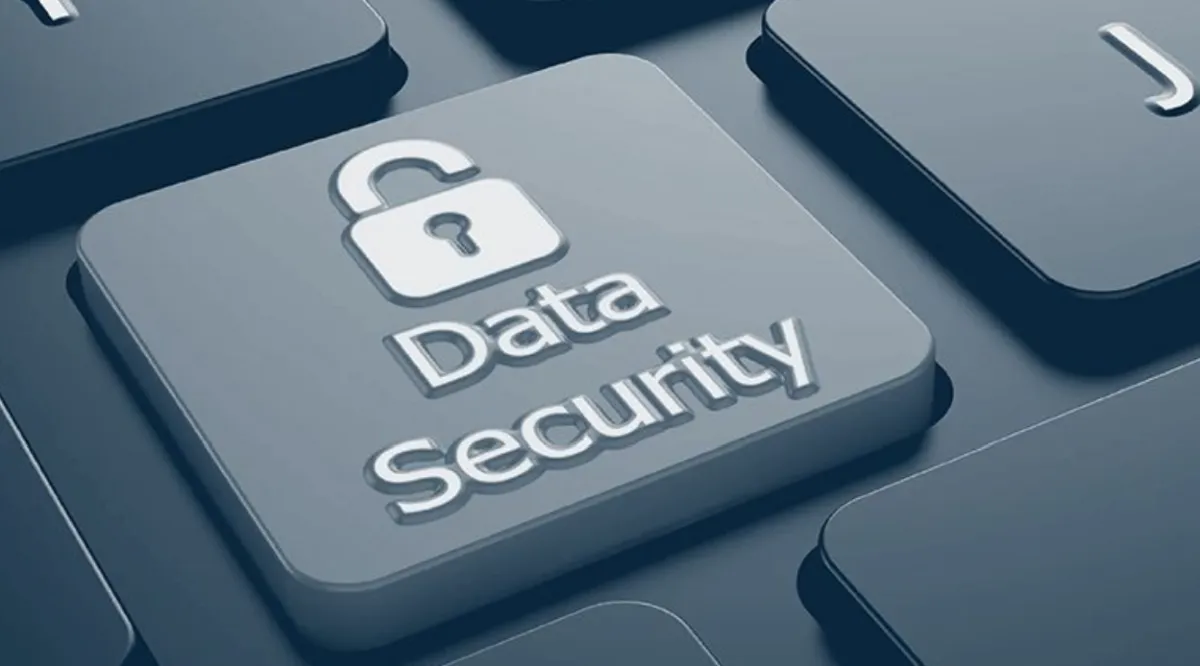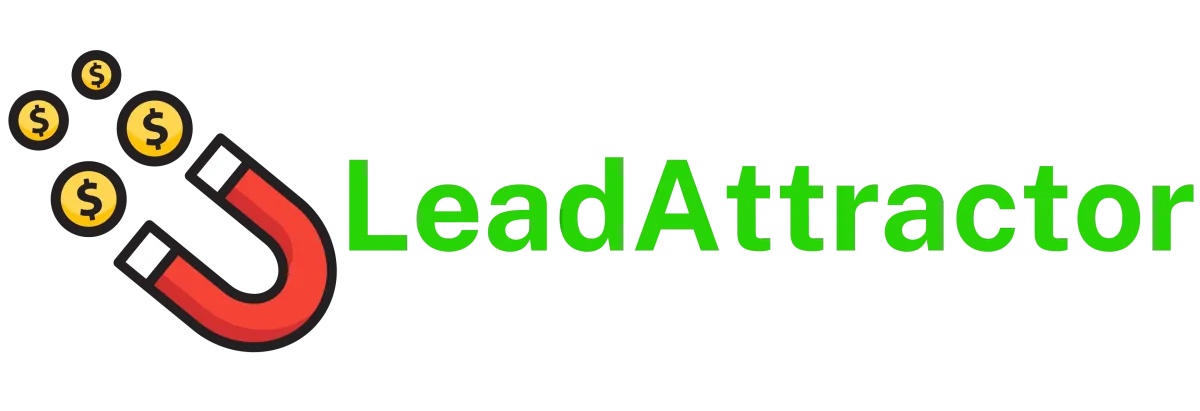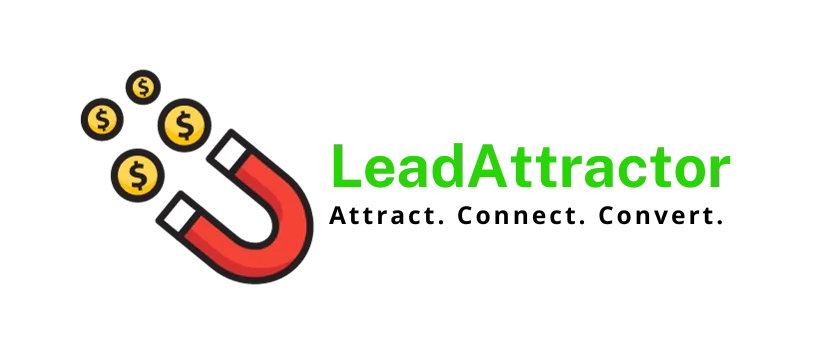LeadAttractor Insights - Your Guide to Business Excellence
Want to stay updated with the latest insights? Subscribe to our newsletter and never miss a post!

Navigating CRM Data Security
While the integration capabilities of a CRM system offer significant benefits, they also introduce complexities regarding data security. In a landscape where data breaches can not only lead to financial losses but also damage brand reputation, ensuring the security of customer data within a CRM is paramount. This guide outlines best practices for safeguarding CRM data, reinforcing the system's integrity, and maintaining customer trust.
Implement Strong Access Controls
Layered Access
Implement role-based access controls (RBAC) to ensure that employees can only access data necessary for their job functions. This minimizes the risk of accidental or malicious data exposure. By assigning specific roles with predefined access rights, businesses can control who sees what data, reducing the potential for unauthorized access.
Authentication Measures
Utilize strong authentication methods, such as multi-factor authentication (MFA), to add an additional layer of security for accessing the CRM system. MFA requires users to provide multiple forms of verification before gaining access, making it significantly harder for unauthorized individuals to breach the system.
Regularly Update and Patch CRM Software
Stay Current
Software vulnerabilities can be a major risk factor for data breaches. Regularly updating and patching your CRM system can close security gaps and protect against known threats. Keeping the software up-to-date ensures that your CRM is protected against the latest security vulnerabilities and exploits.
Vendor Responsibility
If using a cloud-based CRM, ensure your provider is committed to regular updates and transparent about their security practices. Choose a vendor that prioritizes security, providing regular patches and updates, and clearly communicates their security policies and procedures.
Encrypt Sensitive Data
At Rest and In Transit
Data encryption, both for data stored within the CRM (at rest) and data being transmitted to or from the system (in transit), is crucial for preventing unauthorized access to sensitive information. Encryption converts data into a secure format that can only be deciphered by authorized users, protecting it from unauthorized access during storage and transfer.
Educate and Train Your Team
Awareness is Key
Human error remains one of the biggest security vulnerabilities. Regular training on data security best practices, recognizing phishing attempts, and the proper use of the CRM system can significantly reduce risks. Educating employees on how to identify and avoid security threats is essential for maintaining a secure environment.
Create a Security Culture
Foster an organizational culture that prioritizes data security, encouraging employees to report suspicious activities and stay informed about potential threats. Promote open communication about security issues and create an environment where employees feel responsible for safeguarding data.
Conduct Regular Security Audits
Proactive Assessments
Regular security audits can help identify potential vulnerabilities within your CRM system and related processes. These assessments can be conducted internally or with the help of external cybersecurity experts. Audits provide a comprehensive evaluation of your security posture and identify areas for improvement.
Actionable Insights
Use the findings from security audits to continuously improve your CRM data security posture, implementing recommended changes and monitoring their effectiveness. Regular reviews and updates to security protocols ensure that your CRM system remains secure over time.
Backup CRM Data Regularly
Mitigate Data Loss
In the event of a cyberattack or system failure, having regular backups of CRM data ensures you can restore critical customer information and maintain business continuity. Backups act as a safeguard against data loss, enabling you to recover data quickly and effectively.
Secure Backup Storage
Ensure that backups are stored securely, employing encryption and access controls similar to those used for the primary CRM data. Secure backup storage protects against unauthorized access and ensures that backups are available when needed without compromising data security.
Ensure Compliance with Data Protection Regulations
Regulatory Adherence
Familiarize yourself with relevant data protection laws (e.g., GDPR, CCPA) and ensure your CRM practices comply. This includes aspects like data minimization, consent management, and the right to be forgotten. Compliance with these regulations is essential for avoiding legal penalties and maintaining customer trust.
Privacy by Design
Incorporate data privacy considerations into your CRM strategies from the outset, adopting a privacy-by-design approach to customer data management. By integrating privacy measures into the design and operation of your CRM system, you can ensure that data protection is a fundamental aspect of your processes.
Conclusion: A Secure CRM is a Trusted CRM
By adhering to these best practices for CRM data security, businesses can not only protect sensitive customer information but also reinforce their reputation as a trustworthy brand. The integrity of your CRM system plays a critical role in maintaining customer confidence and loyalty, making data security not just a technical necessity but a strategic asset.
FAQs
What are role-based access controls (RBAC)?
Role-based access controls (RBAC) limit access to data based on an individual’s role within the organization, ensuring that employees can only access information necessary for their job functions.
Why is multi-factor authentication (MFA) important for CRM security?
Multi-factor authentication (MFA) adds an extra layer of security by requiring users to verify their identity using multiple forms of authentication, making it more difficult for unauthorized individuals to access the CRM system.
What is the significance of regular software updates for CRM systems?
Regular software updates are crucial for fixing vulnerabilities and protecting the CRM system from known threats, ensuring that the software remains secure against the latest exploits.
How does data encryption protect CRM data?
Data encryption secures information by converting it into a format that can only be accessed by authorized users, protecting it from unauthorized access during storage and transfer.
What should be included in a CRM security audit?
A CRM security audit should assess the system’s vulnerabilities, review security policies, evaluate access controls, and test the effectiveness of security measures to identify areas for improvement.
Why is compliance with data protection regulations important for CRM systems?
Compliance with data protection regulations ensures that customer data is handled in accordance with legal requirements, helping to avoid penalties and maintain customer trust.

LeadAttractor Insights - Your Guide to Business Excellence
Want to stay updated with the latest insights? Subscribe to our newsletter and never miss a post!

Navigating CRM Data Security
While the integration capabilities of a CRM system offer significant benefits, they also introduce complexities regarding data security. In a landscape where data breaches can not only lead to financial losses but also damage brand reputation, ensuring the security of customer data within a CRM is paramount. This guide outlines best practices for safeguarding CRM data, reinforcing the system's integrity, and maintaining customer trust.
Implement Strong Access Controls
Layered Access
Implement role-based access controls (RBAC) to ensure that employees can only access data necessary for their job functions. This minimizes the risk of accidental or malicious data exposure. By assigning specific roles with predefined access rights, businesses can control who sees what data, reducing the potential for unauthorized access.
Authentication Measures
Utilize strong authentication methods, such as multi-factor authentication (MFA), to add an additional layer of security for accessing the CRM system. MFA requires users to provide multiple forms of verification before gaining access, making it significantly harder for unauthorized individuals to breach the system.
Regularly Update and Patch CRM Software
Stay Current
Software vulnerabilities can be a major risk factor for data breaches. Regularly updating and patching your CRM system can close security gaps and protect against known threats. Keeping the software up-to-date ensures that your CRM is protected against the latest security vulnerabilities and exploits.
Vendor Responsibility
If using a cloud-based CRM, ensure your provider is committed to regular updates and transparent about their security practices. Choose a vendor that prioritizes security, providing regular patches and updates, and clearly communicates their security policies and procedures.
Encrypt Sensitive Data
At Rest and In Transit
Data encryption, both for data stored within the CRM (at rest) and data being transmitted to or from the system (in transit), is crucial for preventing unauthorized access to sensitive information. Encryption converts data into a secure format that can only be deciphered by authorized users, protecting it from unauthorized access during storage and transfer.
Educate and Train Your Team
Awareness is Key
Human error remains one of the biggest security vulnerabilities. Regular training on data security best practices, recognizing phishing attempts, and the proper use of the CRM system can significantly reduce risks. Educating employees on how to identify and avoid security threats is essential for maintaining a secure environment.
Create a Security Culture
Foster an organizational culture that prioritizes data security, encouraging employees to report suspicious activities and stay informed about potential threats. Promote open communication about security issues and create an environment where employees feel responsible for safeguarding data.
Conduct Regular Security Audits
Proactive Assessments
Regular security audits can help identify potential vulnerabilities within your CRM system and related processes. These assessments can be conducted internally or with the help of external cybersecurity experts. Audits provide a comprehensive evaluation of your security posture and identify areas for improvement.
Actionable Insights
Use the findings from security audits to continuously improve your CRM data security posture, implementing recommended changes and monitoring their effectiveness. Regular reviews and updates to security protocols ensure that your CRM system remains secure over time.
Backup CRM Data Regularly
Mitigate Data Loss
In the event of a cyberattack or system failure, having regular backups of CRM data ensures you can restore critical customer information and maintain business continuity. Backups act as a safeguard against data loss, enabling you to recover data quickly and effectively.
Secure Backup Storage
Ensure that backups are stored securely, employing encryption and access controls similar to those used for the primary CRM data. Secure backup storage protects against unauthorized access and ensures that backups are available when needed without compromising data security.
Ensure Compliance with Data Protection Regulations
Regulatory Adherence
Familiarize yourself with relevant data protection laws (e.g., GDPR, CCPA) and ensure your CRM practices comply. This includes aspects like data minimization, consent management, and the right to be forgotten. Compliance with these regulations is essential for avoiding legal penalties and maintaining customer trust.
Privacy by Design
Incorporate data privacy considerations into your CRM strategies from the outset, adopting a privacy-by-design approach to customer data management. By integrating privacy measures into the design and operation of your CRM system, you can ensure that data protection is a fundamental aspect of your processes.
Conclusion: A Secure CRM is a Trusted CRM
By adhering to these best practices for CRM data security, businesses can not only protect sensitive customer information but also reinforce their reputation as a trustworthy brand. The integrity of your CRM system plays a critical role in maintaining customer confidence and loyalty, making data security not just a technical necessity but a strategic asset.
FAQs
What are role-based access controls (RBAC)?
Role-based access controls (RBAC) limit access to data based on an individual’s role within the organization, ensuring that employees can only access information necessary for their job functions.
Why is multi-factor authentication (MFA) important for CRM security?
Multi-factor authentication (MFA) adds an extra layer of security by requiring users to verify their identity using multiple forms of authentication, making it more difficult for unauthorized individuals to access the CRM system.
What is the significance of regular software updates for CRM systems?
Regular software updates are crucial for fixing vulnerabilities and protecting the CRM system from known threats, ensuring that the software remains secure against the latest exploits.
How does data encryption protect CRM data?
Data encryption secures information by converting it into a format that can only be accessed by authorized users, protecting it from unauthorized access during storage and transfer.
What should be included in a CRM security audit?
A CRM security audit should assess the system’s vulnerabilities, review security policies, evaluate access controls, and test the effectiveness of security measures to identify areas for improvement.
Why is compliance with data protection regulations important for CRM systems?
Compliance with data protection regulations ensures that customer data is handled in accordance with legal requirements, helping to avoid penalties and maintain customer trust.

Your complete Wholesaling Solution, now supercharged with Artificial Intelligence, ensures you talk to more owners who actually want to sell.
Your complete Wholesaling Solution, now supercharged with Artificial Intelligence, ensures you talk to more owners who actually want to sell.



